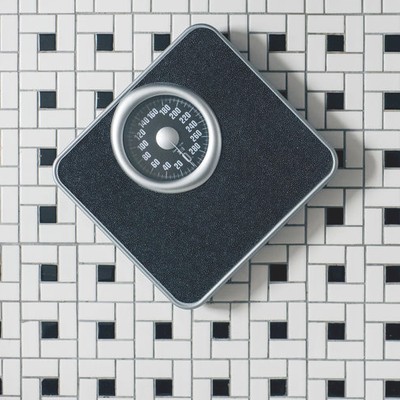
What Is Thin Privilege?
This week, the term ‘thin privilege’ has been making waves on Twitter. It all started when Twitter user and founder of The Lingerie Addict, Cora Harrington, explained what it meant to have it in a now-viral thread that launched a huge internet debate in its wake.
“Hey, you don’t have to “feel thin” to have thin privilege,” wrote Harrington. “Thinness isn’t a feeling. If other people perceive you as thin, you are thin. If you are able to walk into any clothing store and expect to see a wide range of options in your size, you are thin.”
The expression itself is pretty self-explanatory: it refers to the benefits you get from being thin or, more specifically, not being fat. Essentially, it explains the way that society rewards those with slimmer figures. Those benefits include avoiding confrontation from strangers or weight-related bullying, being more likely to get hired (studies have suggested that a woman’s weight can affect her chances of getting a job), eating at a restaurant without facing judgement, or sitting on a plane without worrying what others think of you.
Just as with white privilege, where people can be “white passing” – meaning that those with lighter skin tones don’t experience the same prejudices that those with darker skin tones do – you can also be “thin passing”. This means that even if you’re not super slim, you’re not big enough for people to take notice of you in that way, experience nasty comments or be the target of people’s rage. Each size comes with a measure of privilege that exists on a sliding scale.
Harington, who has plenty of experience working in the fashion industry, points out that many are likely not aware of their thin privilege – even those who make a living out of being “body positive” influencers are experiencing the advantages of being slim without even realising it.
She continues: “My job involves looking at photos of models who are much thinner than me, so I rarely ‘feel’ thin. But I can walk into almost any clothing store and expect—without even thinking about it—to buy something in my size. That is thin privilege.
“The ability to move through life without people insisting you need to be a smaller size...if you don’t have to think about that, it’s privilege. And this is something that I really need “body positive” influencers and fashion bloggers to understand. If you are getting gigs AT ALL, it’s because you closely align with fashion industry ideals. And it is what it is, I guess. What’s not okay is pretending that you don’t.
“Once again: all thin privilege means is that your life isn’t made more difficult because of your weight. It means you aren’t defined things like pay raises, healthcare, and airline seats because of your weight.”
Harrington’s thread has now been favourited 21,000 times and has nearly 5,000 retweets. It launched a nuanced discussion (something that is rare on Twitter) about systemic discrimination and the size difficulties that become an issue for people on both ends of the spectrum.
Many who identified as fat or overweight agreed that they had been subject to discrimination, whether they’re at the gym, on a plane or at the doctors. But some argued that thinness doesn’t immediately equal privilege, especially those who are deemed “too thin” by societal standards. “I’ve been gawked at while eating and told I ‘need to eat more’ and many other variations regardless of the actually (sic) amount of food I’m eating,” said one user. “Yes I’ve been not only looked at but told I’m too underweight and unhealthy to play sports or strenuously workout.”
It was also keenly acknowledged that, just because you have thin privilege, it doesn’t mean your life is easy. “You could be thin, white, rich and talented and still struggle,” Metro writer Rebecca Reid points out. “You could be poor, fat, Black, disabled and gay and still have a charmed life.”
The ensuing debate just showed that there is no better time to take note and check your privilege. Because having privilege isn’t always a bad thing – it’s what you do with it that matters. Employing it for your own self-gain won't earn you much respect, but using that privilege to be a voice for those who don’t have it becomes an important play in the fight for equality.
DISCLAIMER: We endeavour to always credit the correct original source of every image we use. If you think a credit may be incorrect, please contact us at info@sheerluxe.com.